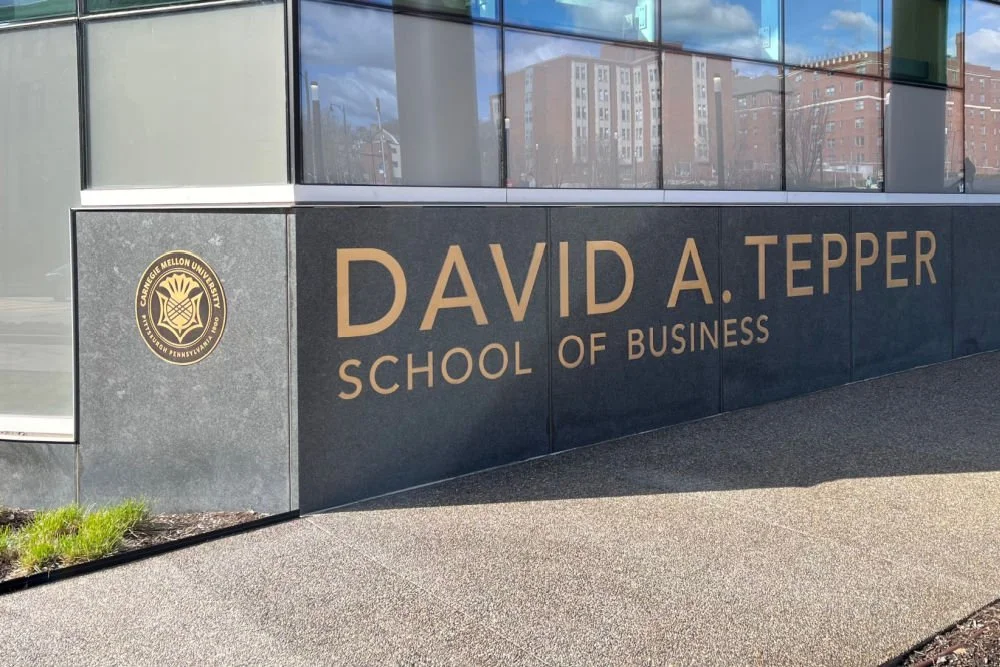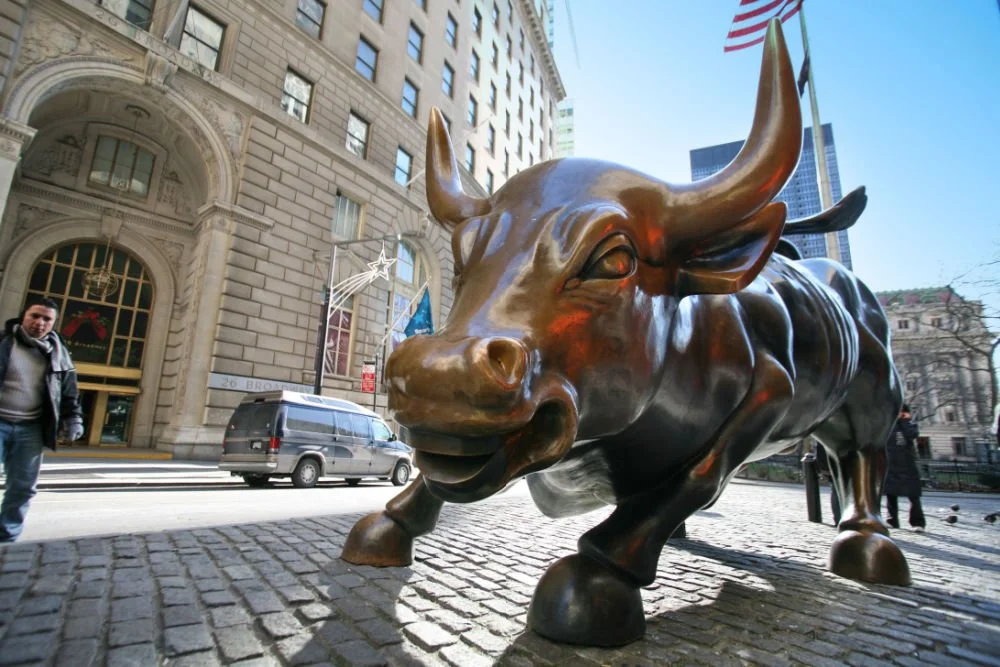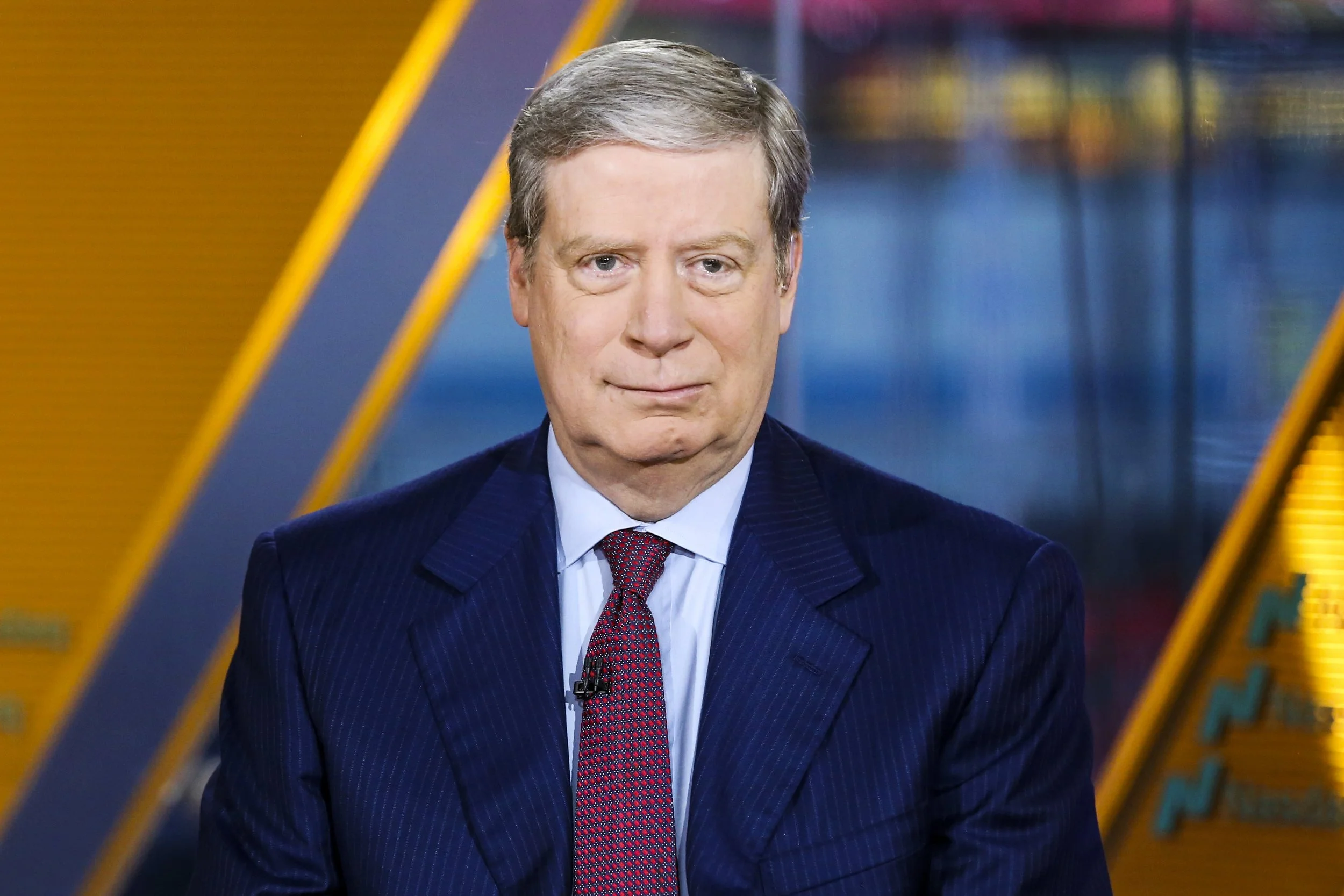Vast Wealth, Growing Giving: These Are the Top Philanthropists from Private Equity
/PlusONE/shutterstock
The financial services industry has produced some of the biggest new philanthropists of recent decades. In particular, mega-givers who’ve made their fortunes through hedge funds loom large on today’s giving landscape—donors like John Arnold, Ray Dalio, Kenneth Griffin, Jim Simons, George Soros and Tom Steyer.
But plenty of major philanthropists are also emerging from the lucrative world of private equity (PE), the most prominent of whom are harnessing multi-billionaire fortunes to make record-breaking gifts and create new foundations.
PE is having a moment right now, as institutional capital flees the hedge fund sector after years of lackluster returns. As a result, firms like Blackstone, Carlyle and KKR are reporting record fundraises, and recent switches to C-corp. status from public partnerships are adding liquidity to the stocks. (ETFs and other investment vehicles are barred from investing in partnerships, but now that PE shops are switching over to C-corp., those investment firms can pour money in, and the stocks have gone through the roof).
All of this is fueling even more wealth creation in the PE space—and more giving as a result. Here, we spotlight some of the top philanthropists from private equity—looking at what they’ve been up to, and who to keep an eye on as the sector reaches new highs.
Carlyle Trio
David Rubenstein, William Conway and Daniel D’Aniello are the founding trio behind the second-largest PE firm in the world: Carlyle Group. Carlyle is in the midst of a record $100 billion fundraise, and expects to be oversubscribed by 20 percent. Since the company earns fees on its assets under management (AUM), we should expect a chunk of that money to flow to these founding partners.
Rubenstein has been a very active philanthropist, giving for a broad swath of issues, from arts and culture to education to healthcare. He seems to have an affinity for well-known institutions such as Duke, Harvard, Johns Hopkins, the Smithsonian, the National Archives and the Library of Congress. Earlier in his career, Rubenstein served in government, and his high-profile gifts around the nation’s capitol, including to refurbish the Washington Monument, have earned him the moniker “patriotic philanthropist.”
Fellow co-founders Conway and D’Aniello are also active givers. In 2012, Conway announced a $1 billion pledge to help the poor in the Washington, D.C., area, through various education and jobs programs initiatives. While his giving hasn’t been easy to track, specific commitments include $30 million for scholarships and tuition assistance for nursing students, and $10 million to Catholic charities in support of at-need populations.
As a former officer in the United States Navy, D’Aniello has a keen focus on veterans’ issues. As IP reported last year, D’Aniello donated $20 million for the construction of the National Veterans Resource Center at his alma mater, Syracuse University, where he serves as a life trustee. D’Aniello has quietly given millions more to the school over a number of years. He also is a big backer of the American Enterprise Institute, where he currently serves as board chair. He gave $20 million for AEI’s new building a few years ago, among other support.
Interestingly, Rubenstein was an original signer of the Giving Pledge, while Conway and D’Aniello have eschewed signing. Yet Conway’s $1 billion commitment, and D’Aniello’s announcement that he plans to give away far more than 50 percent of his assets during his lifetime, put the pair on track to meet the principle of the Giving Pledge, even if they choose not to sign.
We profile the Carlyle trio here, here, and here.
Blackstone Riches
Carlyle may be the second-largest PE shop in existence, but Blackstone takes the No. 1 spot. With net worths in the billions, co-founders Stephen Schwartzman and the late Pete Peterson have each made headlines with their philanthropy.
Schwarzman has made a string of big-ticket gifts over the past decade. Most recently, he gave $350 million to MIT for the study of artificial intelligence. In 2015, he gave $150 million to Yale University to create a new campus center. In 2013, he made a $100 million gift to develop the Schwarzman Scholars program, which “gives the world’s best and brightest students the opportunity to develop their leadership skills and professional networks through a one-year Master’s Degree at Tsinghua University in Beijing.” In 2008, Schwarzman gave $100 million to the New York Public Library, which renamed its main building after the banker. That move came in the wake of national criticism over Schwarzman’s lavish 60th birthday party, where he spent millions entertaining guests and emerged onto a stage from a private helicopter. Normally, this wouldn’t cause such a stir, but Schwarzman happened to turn 60 in 2008, at the height of the financial crisis. At the time, lavish parties weren’t exactly in vogue.
Peterson—who died early last year—gave much of his fortune to the Peter G. Peterson Foundation, which has been primarily focused on the fiscal policy issues that long animated Peterson. The foundation is run by his son, Michael, and has over $600 million in assets. In 2014, the foundation put up $200 million to create the Peterson Center on Healthcare, which is “dedicated to making higher quality, more affordable healthcare a reality for all Americans.” In addition, Peterson was a major benefactor of the Peterson Institute for International Economics—named after him in recognition of his financial support.
You can find our profile of Schwarzman here, and of Peterson here.
Vista Partners
Vista Equity Partners was founded by Robert F. Smith, the wealthiest black American (yes, including Oprah), and co-founded by Brian Sheth.
Smith recently made headlines for announcing that he would pay off the student loans of every member of Morehouse College’s 2019 graduating class. That $34 million commitment received a lot of positive press, but it was hardly Smith’s first foray into big-ticket giving. Through Fund II Foundation, of which he is founding director and president, Smith gave away over $175 million from 2012-2017, including a $50 million grant to establish an endowment for the Cornell University School of Chemical and Biomolecular Engineering.
Fund II Foundation’s largest single gift to date is nearly $60 million to the National Park Foundation in 2016. Smith also recently gave $20 million to support the new Smithsonian National Museum of African American History and Culture, specifically for a digitization program that aims to preserve the family histories of all black Americans.
Sheth has his own foundation—Sangreal—which supports environmental causes, as well as Sheth’s alma mater, the University of Pennsylvania. Sangreal is globally minded, helping to build new schools in Africa and assist orphans in India (Sheth is of Indian descent). Sangreal also made news recently by partnering with Leonardo DiCaprio and Laurene Powell Jobs to create the Earth Alliance, which will “help address the urgent threats to our planet’s life support systems.” In the five years ending in 2017, Sangreal donated $10.5 million to 25 recipients, mostly in the environment and education spaces.
The environment is a big issue for both Smith and Sheth, and we expect increased giving to conservation efforts from these two in the years to come. In fact, they may be two of the most important new environmental donors to emerge in recent years.
Find our profiles of Smith and Sheth here and here.
KKR Cousins
Henry Kravis and George Roberts are the founding members of the third-largest PE firm in the world, KKR. They also happen to be cousins, and the pair’s giving is also related.
Both give to the arts, education, and a host of other issues, including Jewish causes. Kravis has donated to the New York Philharmonic, the Smithsonian, MoMA, the Met and the Churchill Museum, among others. Kravis is NYC-focused, so it’s no surprise that he has also heavily funded the Robin Hood Foundation.
Roberts, in contrast, is more California-focused. In 1997, he established the Roberts Enterprise Development Fund to “invest in social enterprises that create jobs and reinvest their earnings in skill development, training and services for their employees.” Over 100 California social enterprises have been beneficiaries of Roberts’ largesse. Like Kravis, Roberts has also funded many legacy institutions—mainly around his hometown of San Francisco. Those include the San Francisco Opera, Symphony and Ballet.
Both men maintain a broad range of interests, and with KKR’s ongoing success, it’s likely we’ll continue to see these cousins give across the spectrum of philanthropy.
See our profile of Kravis here, and of Roberts here.
Leon Black
The founder of famed PE firm Apollo Global Management has been a fixture on the global philanthropic scene for some time. From 2012 to 2017, his Leon Black Family Foundation gave over $30 million to dozens of recipients, mostly centering on the issues of education, healthcare and Jewish causes.
When Black gives, he tends to give in very large doses. Take his $40 million gift to the Melanoma Research Alliance in the wake of his wife Debra’s melanoma diagnosis. Black also donated $48 million to his alma mater, Dartmouth, to establish the Black Family Visual Arts Center. Last year, he and Debra gave $40 million to MoMA, where Leon is board chair.
In 2012, Black was revealed as the anonymous purchaser of one of Edvard Munch’s “The Scream” paintings. He shelled out a cool $120 million for the masterpiece, and has since made it available for public viewing at MoMA. Black is truly passionate about the arts, saying, “It is what distinguishes us from other species.” Black—who is Jewish—has previously funded Shakespeare Studies and Jewish Studies courses at his alma mater, as well as a series of 100 books on famous Jews throughout history. Debra is a Broadway producer.
Black also serves on the board of FastCures, an organization that works to improve the medical research system by pooling the resources of academic, business and governmental entities.
See our profile of Black here.
John Grayken
While not as prominent as others on this list, John Grayken deserves mention, given his recently stepped-up giving. The Irish-American billionaire and founder of Lone Star Funds made news two years ago when he donated $25 million to establish the Grayken Center of Addiction at Boston Medical Center. BMC labelled the gift a “turning point in addiction funding,” a cause that had not been a major issue for ultra-wealthy donors up to that point.
Grayken’s gift is looking quite prescient two years later, given the increased focus on the consequences of America’s opioid epidemic. Perhaps ironically, Grayken is no longer an American citizen, having emigrated to Ireland for tax purposes. Despite saving even more money on taxes, Grayken hasn’t been very public about his philanthropy (the BMC gift is a lone exception).
We’ll have to wait and see if Grayken’s giving picks up steam, but with a fortune estimated at $6 billion, this is one PE winner worth keeping an eye on.
Glenn Hutchins
Hutchins founded Silver Lake Partners, a tech-focused PE firm that has financed the likes of Skype, Alibaba Group and Symantec. Through his Hutchins Family Foundation, Hutchins gives to a variety of causes. Chief among them are education, public affairs, the arts and science. He has been a major contributor to Harvard with multi-million-dollar gifts over the years, most notably providing $25 million in support for the Hutchins Center for African & African American Research. He has also given to the Brookings Institution, where he bankrolled the Hutchins Center on Fiscal & Monetary Policy, and the Center for American Progress, where he serves on the board.
The Barack Obama Foundation and Hutchins’ other alma mater, the Lawrenceville School in New Jersey, round out the list of organizations to which he has donated seven-figure gifts.
See our full profile of Hutchins here.
Mitt Romney
The former governor of Massachusetts and current senator from Utah is best known for losing the 2012 presidential election to incumbent Barack Obama. But his political career notwithstanding, Mitt Romney’s philanthropic career has been as robust as anyone’s.
The co-founder of Bain Capital has given away millions to issues including healthcare, education and the Mormon Church. Romney’s wife Ann suffers from MS, so Mitt has given generously to fund multiple sclerosis research. He helped launch a $50 million fundraising campaign to establish the Ann Romney Center for Neurologic Diseases. Romney has also funded efforts to combat lupus epilepsy, Huntington’s disease and cancer.
As a Mormon, Romney is expected to tithe 10 percent of his income to the Mormon church. And indeed, he has given millions to the Church of Jesus Christ of Latter-day Saints, as well as Brigham Young University.
Romney has also formed the Romney Foundation for Children, which has over $13 million in assets and has donated $2.6 million to two-dozen organizations over the five years ending in 2017. While relatively small in size, the foundation was the subject of much media scrutiny during the 2012 campaign after Romney was accused of exploiting tax loopholes.
Romney is not the only active giver to emerge from Bain Capital. Mark Nunnelly, Jonathan Lavine, Steve Zide and Edward Conard are Bain philanthropists who we’ve mentioned in Inside Philanthropy.
See our profile of Mitt Romney here.
Bruce Rauner
Chicago native Rauner served as chairman of PE firm GTCR, eventually leaving to launch a gubernatorial campaign and serving one term as governor of Illinois. With a net worth in the hundreds of millions, Rauner has given extensively to his native Chicago, including the Chicago Red Cross, as well as numerous Chicago-area public and charter schools.
The Rauner Family Foundation is also Chicago-focused, with six-figure gifts going to A Safe Haven Foundation and the Illinois State Police Heritage Foundation. Most of the foundation’s gifts go to education, human services and healthcare. Rauner has also supported conservative policy work focused on Illinois.
Rauner’s wife Diana has a Ph.D in developmental psychology, and that has influenced Rauner’s giving. In 2016, the foundation donated $600,000 to Ounce of Prevention Fund, which supports early childhood education for kids in poverty.
See our profile of Rauner here.
John Jordan II
John W. “Jay” Jordan II is the founder and chairman of The Jordan Company, a middle-market leveraged buyout specialist. Jordan has donated over $150 million to his alma mater Notre Dame over the years, including a single gift of $75 million for science and technology research in 2014.
The Jordan Family Sports Foundation has given nearly $3 million to sports and education-oriented nonprofits through 2017. The foundation has also established the Jordan Scholarship Program, which supports the costs of education for student-athletes at Poly Prep.
See our profile of Jordan here.
Robert Niehaus
Niehaus is founder and chairman of Greenhill Capital Partners. The Robert and Kate Niehaus Foundation has given away over $12 million to 30 organizations across a range of fields including education, international affairs, healthcare and religion.
Niehaus has a global focus, including giving to the Touch Foundation, which supports healthcare initiatives in Africa. He also served as chairman of Acumen, which supports entrepreneurship in emerging markets. Niehaus has also given multiple seven-figure gifts to the Cystic Fibrosis Foundation, where he is vice chair of the board, and Memorial Sloan Kettering.
See our profile on Niehaus here.







































